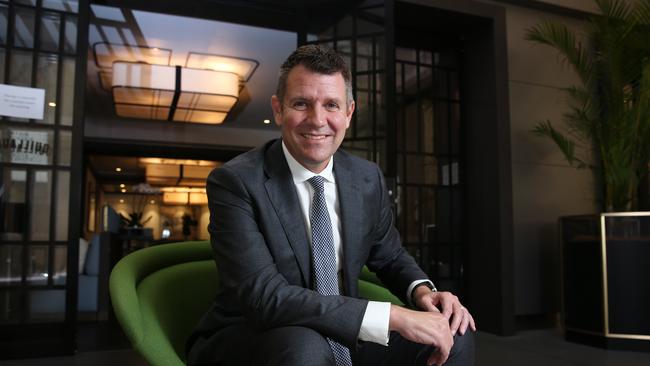
Could the industry funds, with their huge amount of funds under management — and their billions a year in net inflows — play a role in providing debt or equity to help some Australian corporations survive the coming recession?
This could particularly be the case for those in industries which have large number of employees.
The industry fund backed IFM Investors has assets of more than $160bn, an increasing amount of which are now overseas.
Hospitality industry fund Hostplus estimates it has net inflows of more than $1bn a month it needs to invest.
Industry funds have to protect the best interests of their members with prudent investments, but they have also been crying out for more major infrastructure and other national building projects to invest in.
One could argue that with their 11.3 million members they have a stake in helping to see the economy get through this crisis with as few scars as possible.
Industry funds, as they point out themselves, can invest with a long-term view while others have to scramble to deliver short-term returns.
In interview after interview, industry fund executives express their desire to invest in more blue chip, big ticket assets in Australia, particularly infrastructure.
They are also interested in a range of nation building projects, but complain they can’t get to sit down with government to work out ways to structure deals which would match their cash with federal government-backed ideas.
They may range from bailing out an airline with revenue falling off a cliff, but it also could involve providing more credit into corporates as liquidity dries up.
Creative thinking
Could they agree to advance funds to a company in need on the basis of some sort of government guarantee or backing on the short-term return?
Could it involve working with the government in some creative way, as companies struggle to get through the crisis — which hopefully will be over or at least contained in six to nine months?
Many people are predicting the crisis could lead to a renationalising of some sectors.
Companies such as Qantas, Commonwealth Bank, Telstra and various insurers were once owned by state or federal governments.
But if the financial structure is right, it may be better for some to be part owned or backed by cash rich investment funds than the federal government, particularly given that the crisis is temporary.
All sorts of creative thinking will be needed and in fact is already being done, although no one is prepared to speak out at the moment.
Billionaire investor Warren Buffett is famous for using his group’s massive financial resources to bail out Bank of America and Goldman Sachs during the global financial crisis. Of course Buffett had the billions in cash at the ready at a time of crisis and general lack of liquidity.
He also had the financial sophistication to put together a bailout package which suited him as an investor and Goldman Sachs as the borrower. In the end Goldmans got to survive as an independent company and Buffett did well financially.
As companies come under stress, the federal government may have to decide if it needs to step in to back specific companies or at least help prevent them going under.
What is needed is some sort of bridge between the government and the industry funds, to at least start discussing where the big crunch points are and what could be done, how deals could be structured in a way which taps the short-term liquidity of industry funds and allow them to have a long-term pay off when things get back to normal.
The federal government announced this week that workers hit by the crisis could access their super — with withdrawals of up to $10,000 before the end of June and $10,000 next financial year — to get through the crisis.
But linking up the industry funds’ cash with government- backed emergency investments is another powerful way of harnessing some of our $3 trillion in super to protect the country during its time of need.
One person who could play a role as a bridge between government and private sector capital, particularly industry funds, is someone like former NSW Premier Mike Baird, who has already handed in his resignation as a senior executive with NAB.
As Premier Baird was involved in selling off some state government assets, including NSW Ports, to industry super funds, and put in train the process which saw the sale of half of electricity company Ausgrid to industry super funds. He also did an innovative deal with Hostplus to rebuild the convention centre at Sydney’s Darling Harbour.
Another could be former Treasury Secretary John Fraser, who worked for many years as a senior executive with UBS.
The industry funds played a backstop role in Australia during the financial crisis in providing equity to the banks.
More recently there have been innovative moves by some in the sector to lend to big corporates.
Australia’s largest super fund, AustralianSuper, has assets of more than $170bn.
AustralianSuper and IFM have already been involved in corporate lending to Anthony Pratt’s global packaging company Visy.
Australia has a $3 trillion super sector and some sophisticated financial brain power in it. Don’t be surprised to see the industry funds stepping up to the plate if deals can be correctly structured.




As companies face what could be the worst recession in a lifetime, quiet discussions are taking place around what role the $800bn industry superannuation movement could play in providing stressed corporates with a lifeline.